

Episode List
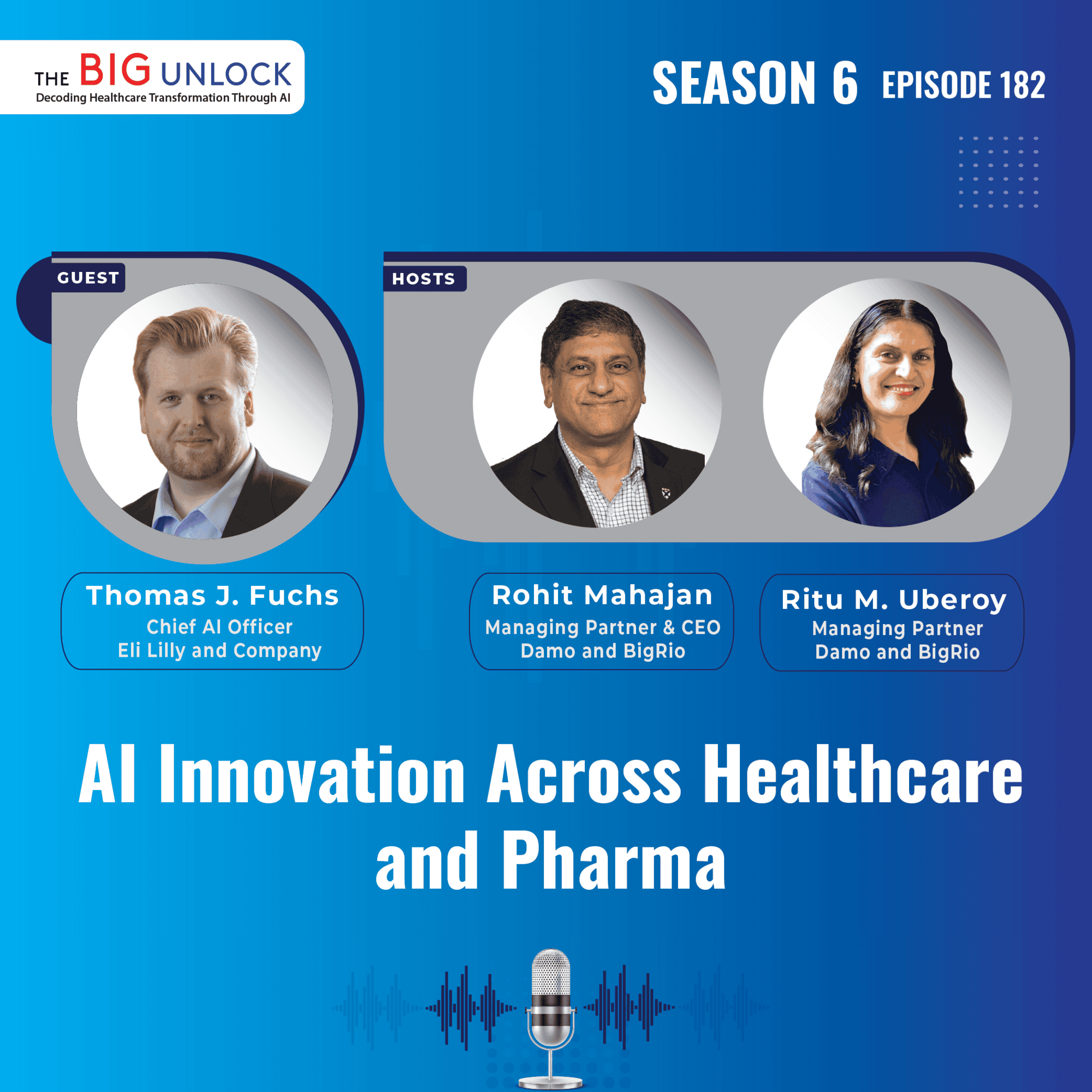
AI Innovation Across Healthcare and Pharma
In this episode, Thomas Fuchs, Chief AI Officer at Eli Lilly, shares his journey from early machine learning research to spearheading transformative AI initiatives across the pharmaceutical value chain. Lilly is running over a thousand AI projects—from drug discovery and development to manufacturing and commercial operations—leveraging innovations like language models for chatbots, computer vision for quality control, and biomarker development. Thomas emphasizes trust, transparency, and collaboration as critical to AI adoption, supported by AI certification programs for all Lilly technology employees, as well as AI education resources being made available for everyone at Lilly. He also highlights the company’s unique “lab-in-the-loop” setups that generate synthetic data to accelerate innovation. Thomas shares real-world successes, including AI-assisted drug discovery and intelligent chatbots, and how AI is building confidence across the organization. With robust data infrastructure and scalable strategies for synthesizing large datasets, Lilly is driving rapid innovation. Thomas predicts faster drug design, broader access to medicines, and continuous education as defining trends for AI in healthcare. Take a listen.
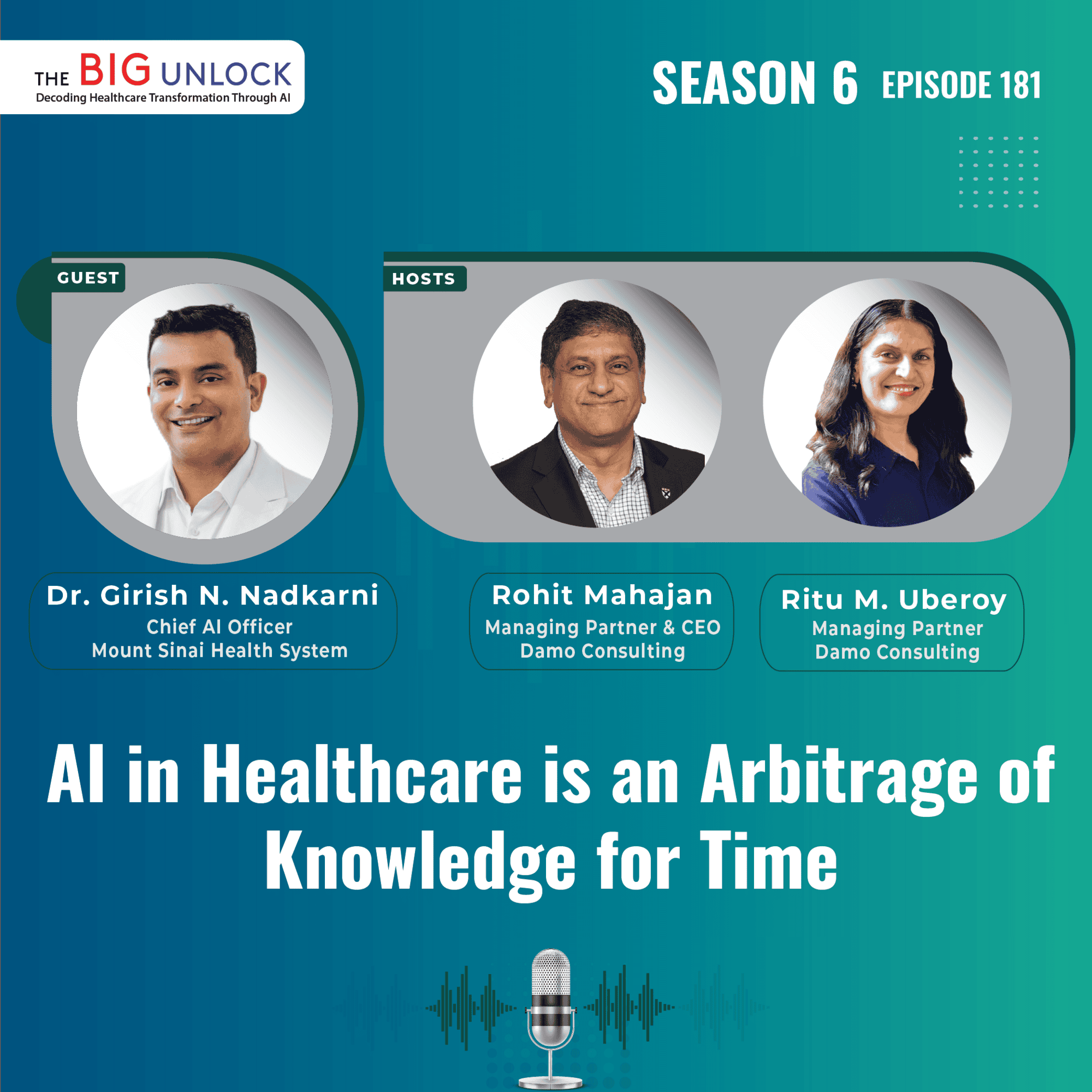
AI in Healthcare is an Arbitrage of Knowledge for Time
The Big Unlock · Dr. Girish N. Nadkarni, Chief AI Officer, Mount Sinai Health System In this episode, Dr. Girish N. Nadkarni, Chief AI Officer at Mount Sinai Health System, discusses his background as a physician-technologist and his vision for AI in healthcare as a tool that augments rather than replaces clinicians. Dr. Nadkarni shares insights on how AI is reshaping healthcare. He describes AI as an ‘arbitrage of knowledge for time,’ enabling physicians to spend less time on administrative work and more time with patients. He also shares real-world examples including ambient AI scribes that eliminate manual note-taking and predictive models that detect patient deterioration hours before it occurs, especially in critical care units such as the NICU. Dr. Nadkarni distinguishes predictive AI’s deterministic approach from generative AI’s flexible, non-linear potential, emphasizing the need for governance, ethics, and trust in deploying both. He outlines Mount Sinai’s cross-functional framework—spanning care, operations, workforce, and research—supported by an assurance lab to monitor bias and safety. Dr. Girish highlights current AI applications that save physicians time and enable proactive care, while predicting future developments will include multimodal integration of text, voice, images, and video to better reflect clinical decision-making processes. Take a listen.
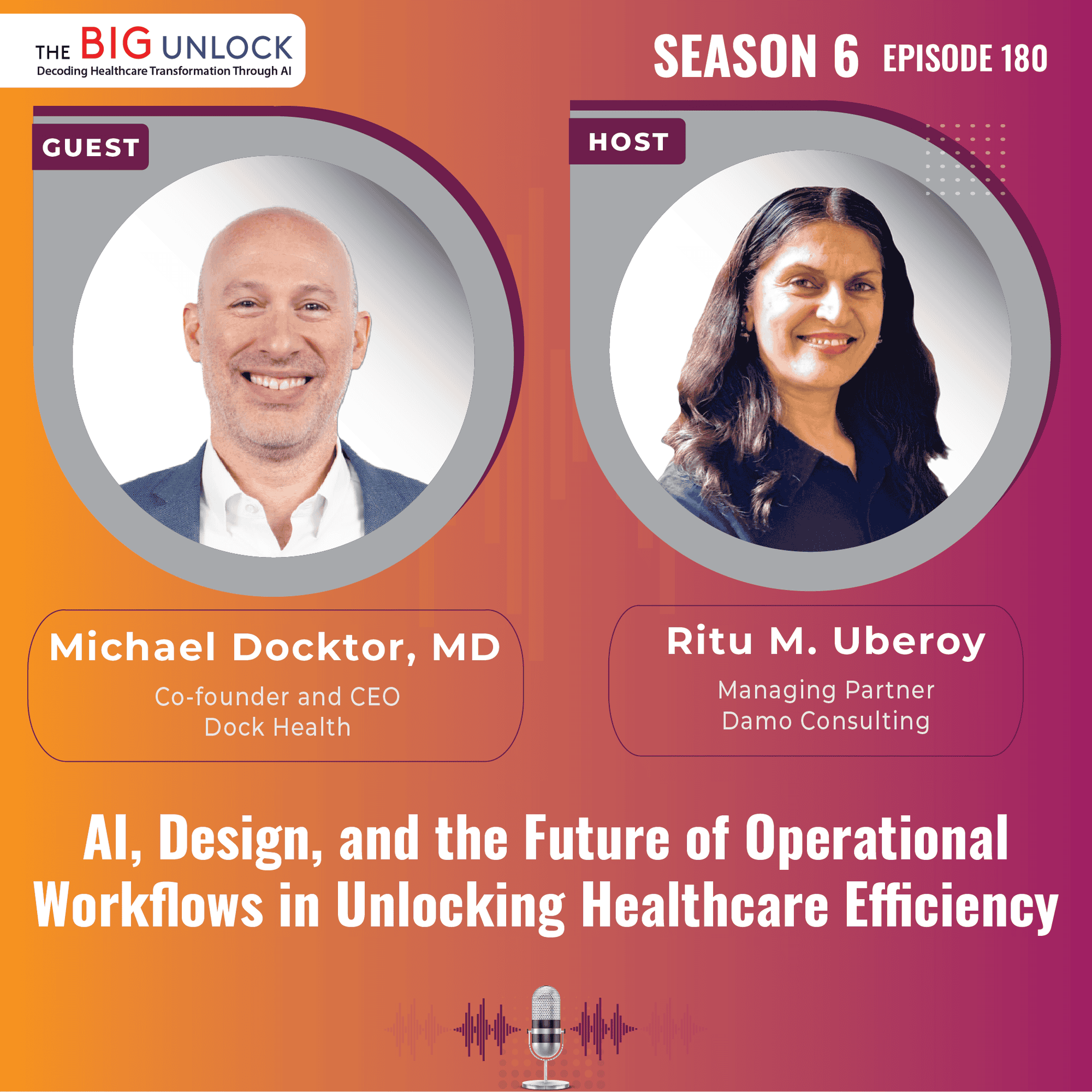
AI, Design, and the Future of Operational Workflows in Unlocking Healthcare Efficiency
The Big Unlock · Michael Docktor, MD, Co-founder and CEO of Dock Health In this episode, Dr. Michael Docktor, Co-founder and CEO at Dock Health, shares his journey from being a pediatric gastroenterologist at Boston Children’s Hospital to building a healthcare technology company. Inspired by his sister’s medical experiences and his family’s design background, Dr. Doctor combined medicine, design, and technology to address inefficiencies in operational workflows, particularly the administrative burdens that weigh heavily on providers and staff. Dr. Docktor explains how Dock Health was created to serve as a productivity platform for healthcare, filling the gap between electronic health records (EHRs) and the countless administrative tasks not supported by them. By digitizing and streamlining processes like referrals, patient intake, and care coordination—often still managed through faxes, emails, and spreadsheets—Dock Health aims to reduce redundancy, improve visibility, and enhance the overall user experience for healthcare organizations of all sizes. The conversation also focuses on the role of AI and automation in transforming healthcare operations. Dr. Docktor highlights Dock Health’s “AI‑first” approach, incorporating generative AI and agentic models to automate routine tasks while keeping humans in the loop for oversight. He envisions a near future where administrative inefficiencies are largely eliminated, giving clinicians more time with patients. Dr. Docktor also describes AI as the “big unlock” that could massively reduce the trillions wasted annually in healthcare administration, making care more efficient, accessible, and patient‑centered. Take a listen.
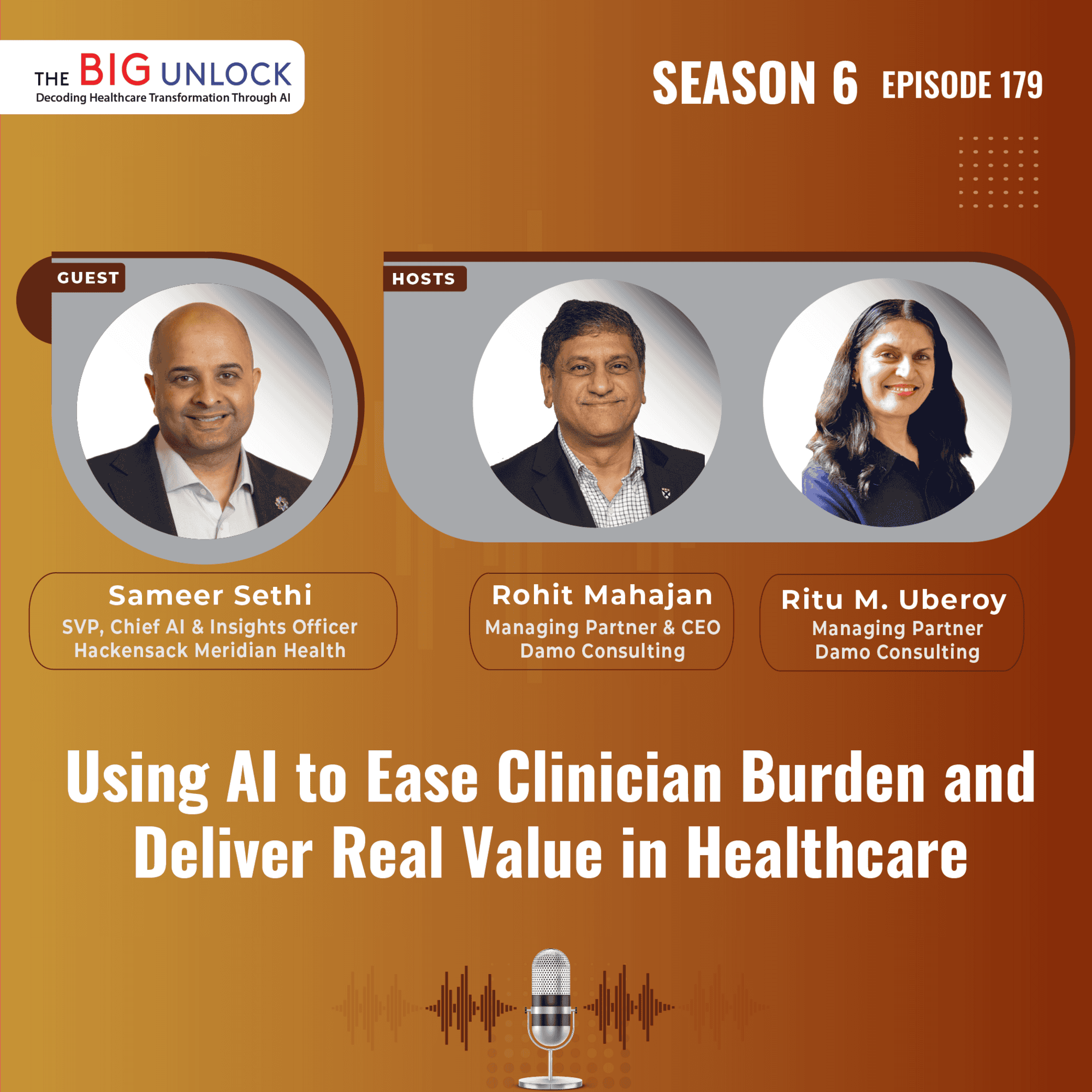
Using AI to Ease Clinician Burden and Deliver Real Value in Healthcare
The Big Unlock · Sameer Sethi, SVP, Chief AI & Insights Officer, Hackensack Meridian Health In this episode, Sameer Sethi, SVP and Chief AI & Insights Officer at Hackensack Meridian Health, shares how the health system is embedding AI directly into clinician workflows, moving from theory to real-world transformation. Sameer outlines practical applications such as specialty-specific clinical note summarization, which reduces “pajama time” for physicians and improves patient interactions, and sentiment analysis of patient survey data, which surfaces actionable insights at scale. He also describes Hackensack’s AI governance framework – a board-approved structure with six strategic focus areas, guided by cross-departmental representation to ensure safe, effective adoption. Emphasizing that AI solutions serve as decision-support rather than decision-making tools, Sameer highlights the importance of keeping a “human in the loop.” He sees agentic AI as the next frontier – integrating LLMs, RPA, and rule engines to automate complex processes such as prior authorizations and denial management. The result: faster workflows, administrative efficiency, and truly personalized care at scale. Take a listen.
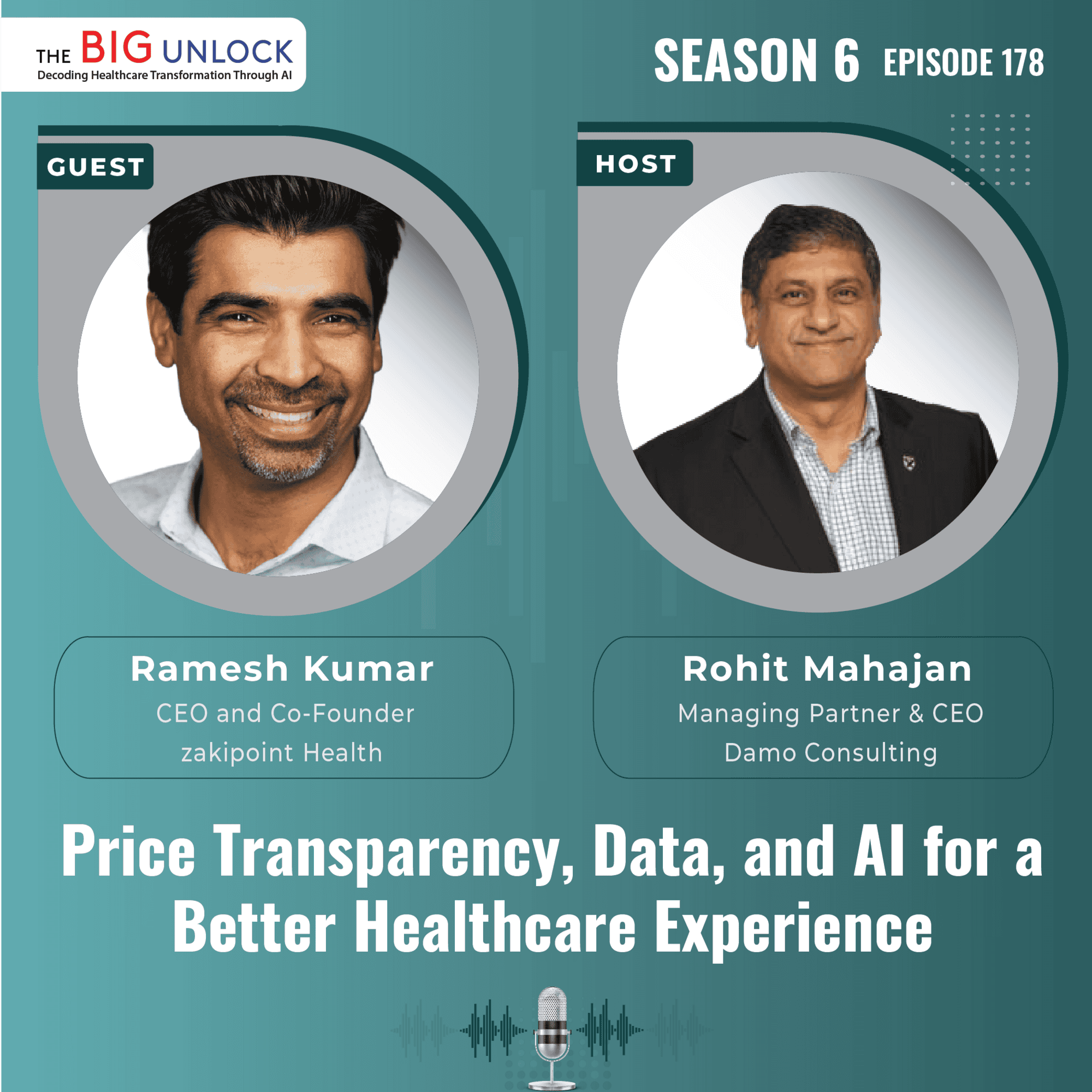
Price Transparency, Data, and AI for a Better Healthcare Experience
The Big Unlock · Ramesh Kumar, CEO and Co-Founder, zakipoint Health In this episode, Ramesh Kumar, CEO and Co-founder of Zakipoint Health, shares his perspective on addressing healthcare’s persistent challenges—high costs, lack of price transparency, and fragmented care. He emphasizes that patients, or ‘members,’ often struggle to understand the true value of care, even as regulatory pushes for transparency continue. Ramesh highlights how greater data visibility and patient empowerment can shift the system toward value-based outcomes. He emphasizes that true digital transformation goes beyond compliance and organizations must leverage transparency in data to create actionable insights for patients, employers, and providers alike. He also discusses the role of AI and agentic AI in simplifying complexity, reducing administrative burden, and enabling more personalized, efficient care delivery. Ramesh underscores the need for co-creation between payers, providers, and technology innovators to build sustainable solutions. For him, the convergence of transparency, digital innovation, and AI marks a pivotal moment to reimagine healthcare’s future. Take a listen.
Create Your Podcast In Minutes
- Full-featured podcast site
- Unlimited storage and bandwidth
- Comprehensive podcast stats
- Distribute to Apple Podcasts, Spotify, and more
- Make money with your podcast












